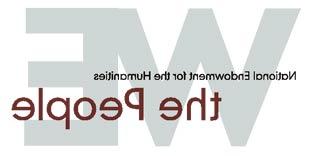第一届大陆会议
介绍
News of the Coercive Acts arrives in the colonies in the spring of 1774. In response to the punitive measures outlined in the Boston Port Bill, Bostonians propose to cease all trade with Britain, as set forth in the Solemn League and Covenant. Haunted by the failure of earlier commercial resistance initiatives, the other twelve colonies (as well as most towns in 麻萨诸塞州) are wary of yielding to Boston's leadership. A colony-wide congress to discuss a united course of resistance emerges as a logical alternative. 到1774年7月, each of the American colonies (except Georgia, where elections are thwarted by the royal governor) has elected delegates to a "Grand Continental Congress."
马萨诸塞州代表约翰·亚当斯, 塞缪尔·亚当斯, and Thomas Cushing begin their journey to Philadelphia on 10 August, surveying the political landscape and meeting fellow delegates along their route. The Congress convenes on 5 September at Carpenter's Hall in Philadelphia. Virginian Peyton Randolph is elected chairman, and Charles Thomson of Pennsylvania is elected secretary. The fifty-six delegates have a vital mandate: to organize an appropriate response to the Coercive Acts, and to determine the nature of Parliament's authority over the colonies. Throughout the proceedings, John Adams records the 热烈的辩论.
九月六日, delegates are informed that General Thomas Gage has seized provincial military supplies stored in Charlestown, 麻萨诸塞州, causing quite a stir among the colonists there. As delegates ponder the fate of 麻萨诸塞州, Joseph Warren and a committee of men from Suffolk County, 麻萨诸塞州, 制定一个抵抗计划. This plan—the Suffolk Resolves—is presented to Congress on 17 September. 用一个声音说话, the delegates unanimously endorse the document, their first official act.
The Congress next considers implementing nonimportation, 不可出口, and nonconsumption movements to force Parliament to repeal the Coercive Acts. 希望 让英国破产,拯救美国 通过商业阻力, 代表们批准了一项计划, known as the "Continental Association,1774年10月26日. Less defiant delegates, however, continue to promote accommodation as the best course of action. 9月28日, Pennsylvania delegate Joseph Galloway proposes a plan of union that calls for the creation of an American legislature subservient to Parliament. Galloway's proposal fails, but conservative delegates persuade Congress to send 一个卑微的请愿书 致乔治三世.
看到king additional support for their cause, delegates compose an address to the people of Great Britain and, 在另一封信中, 提醒他们的殖民地同胞, 你自己的救赎 ... 取决于你自己." Arguing that Parliament's actions are part of "a system formed to enslave America," the Congress adopts a declaration of rights and grievances on 14 October 1774. 10月26日休庭前, delegates agree to convene again on 10 May 1775, unless Parliament addresses their concerns.
The Congress does not publish any of its proceedings until after it has adjourned. Throughout the months of September and October 1774, few 费城报道 是即将到来的. 当, in the form of pamphlets and broadsides, Congress's proceedings are made public in the fall of 1774, loyalists question the legitimacy of the assembly and denounce its “武断和专制”的计划. 然而,他们的运动失败了,因为 colonists rally around the Congress. 提倡, 包括亚历山大·汉密尔顿, 写信支持聚会, most colonial legislatures endorse its proceedings, and thousands of colonists form local committees to enforce the Association.
Colonists are left to wonder how the King and Parliament will react to their declarations, 请愿书, 和地址. 他们不用等太久. 到1775年春天, colonists learn that the British ministry has no intention of meeting their demands.
罗的革命
"The Genl Court Chose a Committee of five to go to the General Congress - James Bowdoin, 约亚当斯, Saml亚当斯, 演讲者 & 陶顿的佩恩先生”












